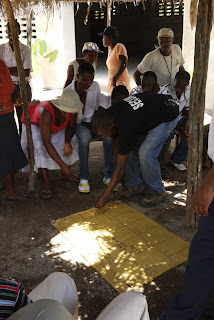If you've been following, you know that I spent the summer working with all of our local partners collecting data of various stripes and colours in order to measure progress in our work. So I've now passed from the data collection phase to the data analysis phase. It kind of feels to me like the opening scene in the movie "The Matrix" where all that code is streaming down in Japanese. If you saw the movie you know what I'm talking about. If you didn't, I feel like there's these waves of numbers washing over me and I've got to figure out how to make sense of it all.
So that means statistics. Yup. And in order to generate those statistics, I've latched on to an open-source system known simply as "R', thanks to the recommendation of a former boss of mine. R is recognized as one of the top systems (languages) for statistical analysis, and is supported by a large community of statisticians, scientists, and nerds like myself. Besides being very powerful and flexible, it has the advantage of being free.
I'm just learning, and have barely scratched the surface of what this thing can do, and like much open-source software, figuring out what to do is not always that obvious. So today I was quite elated when I learned how to get R to read and process Thai script. This means I don't even need to understand Thai--which I don't--I can just ask the program to analyse it, and spit the numbers back to me. Once its in the condensed form after processing, I can then get key words translated (either by a human or by the internet), and voila, things make sense.



















